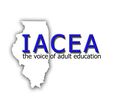|
Bill Swiderski, Joliet Junior College
My name is Bill Swiderski and I teach an HSE reading and social studies class for Joliet Junior College. The goal of the majority of students is to pass either the GED or Hi-Set test. A few are in the class to improve their basic skills in reading before taking classes for obtaining a certification in a field or another degree. The students have multi-level TABE reading scores from two up to five with the majority in the 3-4 range. In the social studies portion of the curriculum, because Illinois requires proof of passing the Constitution Test (which many of the students have not done), I have preparation materials for them to do before taking the Constitution Test and almost all pass this on the first attempt. I also do some short lessons on map reading, geography and economics, since a few question on the HSE tests will cover those topics. The challenge for me was to find suitable materials for the history and government areas. The students have to read actual documents and answer question on those readings. My goal was to find resources for that area. I found a free online program from Stanford University called Reading like a Historian, which offers detailed lessons to present to students that use historical documents as the primary source of material. In future blog posts, I hope to share some of the lessons I have used (their list continues to grow each year) and to show how I use and adapt these lessons for the students. Since my curriculum also requires the language arts reading, language, and the essay, I do not have the class time to make elaborate plans, so I have streamlined many of their lessons to cover them in a short amount of time. To teach these lessons, I give them in a sort of chronological order to show the progression of the historical periods and highlight how one has affected another. During the course of each lesson, I try to give the necessary background information on the topic so that the documents will make more sense, include some visual presentation (pictures or short video), the reading of the document, multiple choice questions to answer (which I adapt from their lessons since that is the format for the tests), and discussion that may relate to today’s circumstances and their lives. I do not avoid political discussions but insist that they be done in a respectful manner. One lesson I've used is titled Examining Passenger Lists. When colonists came to the New World, these lists may have contained the only record of who was aboard. After discussing why the passengers might have wanted to come here, I chose the smaller of the lists presented in the lesson in order to streamline the time needed. The goal was for the student to sort and organize the information into categories of gender, age, and marital status. After completing this, we discussed the genealogy of our own families and what some may have found out from using sites like ancestry.com. The lesson took about 30 minutes and seemed to be well-received. Have you used Stanford University's Reading Like a Historian resource? Or have you used another resource for teaching social studies that was well-received by students? Leave a comment on this post and tell us about it!
0 Comments
|
EditorsWant to submit an article for the IACEA Blog? Send your 300-500 word article to: Archives
May 2021
Category
All
|

 RSS Feed
RSS Feed